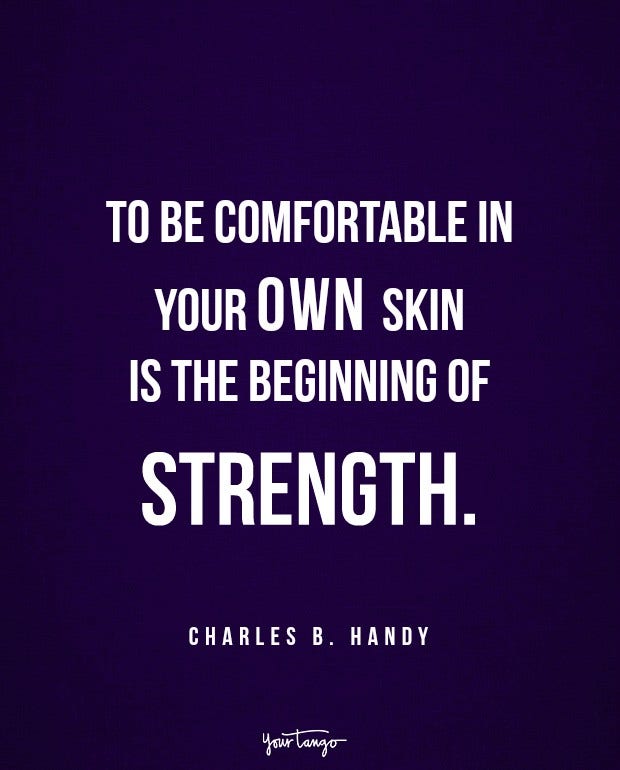How To Live With Scars — Seen Or Unseen
Move on without going backward.

Anyone who has lived life’s various stages will have many scars, age spots, warts and wrinkles that are visible and maybe even annoying.
I just had surgery for a melanoma on my forehead, bigger than most, and it left a V-shaped scar about 2 inches by 3 inches. It doesn’t look pretty, but it’s better than letting the cancer spread.
And many of you also have invisible scars from hurts (physical or emotional) from your past. Sometimes you feel you are scarred from emotional or physical abuse, something in your past you are embarrassed by or ashamed of.
Or maybe those who influenced you early in your life scarred you by harsh treatment, or bullying, or unloving comments or actions. These experiences might be memories of bumps and bruises along your journey, but they no longer need to be painful.
Just as scars are visible reminders of an injury or wound we once had, hopefully, the pain that accompanied them is gone.
But scars are also metaphorical and psychological reminders for those memories, experiences, and challenges that have stretched us to fully experience life as it happens, good or bad, positive or negative, or challenging or inspiring. But knowing how to move on can be a challenge.
What we make of our scars, hurts, and heartbreak is the key, and we don’t have to do it alone.
Take what life gives you, learn from it, and move forward with the help of a committed confidante or two.
Ziad K. Abdelnour once said, “Life is like a camera. Focus on what’s important. Capture the good times. And if things don’t work out, just take another shot.”

One of my major beliefs for much of my life has been that personal and spiritual development is a process.
You can either just let happen and be an observer, or you can be more purposeful in your personal exploration and be a participant in the unfolding or emergence of your being.
The "nakedness" analogy:
Can you remember the first time you were aware of being naked?
Perhaps as a young child or more likely as an adult while skinny dipping in some hot spring in the wilderness, visiting a Japanese spa, or running naked on the beach on a secluded island. (Okay, I admit to all those, but how about you?)
Or maybe it was the first time you made love and felt so naked and free — or naked, embarrassed, and uncomfortable. Hopefully, if it was negative for you, that changed over time and with experience.
But perhaps for some, this experience of being naked was not so freeing.
The vulnerability was not safe or experienced in a positive manner.
There are so many of the walking wounded, the scarred, and the scared who may not show that secret part on the outside, but it lives within them. There are also those who may not be scarred or have deep hurts, but instead, have unrealized dreams or something in them that wants to be called forth.
If those parts are never shared, they are likely never to manifest.
This may include in relationships, the workplace, their community, with neighbors, and with professional organizations, anywhere there may be an opportunity to share authentically.
Your greatness may be waiting to be manifested, if you share it with another, in naked truth.
Once we are naked in a safe and secure place, we feel free (if we are comfortable with it), and we reveal ourselves with all of our warts and wrinkles to those we are with.
Maybe you have only been naked with a lover or spouse; perhaps you have had the experience of a clothes-optional hot tub or hot springs in an idyllic setting with strangers you will never see again.
So you revealed yourself briefly to more than one other familiar person, but so did they!
And how many of you have been to Sweden or Finland where, after dinner, the whole family invites you into their sauna sans clothing! To them, that is tradition and nothing to be embarrassed about!
This is not a recommendation for unbridled nudity. This is about being naked metaphorically. Yet to most, that feels equally scary or provocative. The process is about finding places, spaces, and people where you can be naked metaphorically, emotionally and soulfully. It’s where you can reveal yourself in full spectrum humanness.
I am not proposing that you be overly transparent and vulnerable everywhere, but you can be smart and protective of these special places and relationships where you can be comfortable in your own skin and let yourself be naked in safety.

We often use phrases like “naked truth,” “bearing your soul,” or similar phrases that indicate an atypical expression of emotions or a personal story unshared that lies under the surface.
Of course, we need to be clothed and protected from weather and abuse and covered for comfort and safety. The same is true for emotional nakedness.
Pick and choose carefully the places to be revealing. You only need a few special people and places.
Some might use a therapist, life coach, spiritual director, minister, or best friend, but the real opportunity comes from nurturing a few relationships with those you love and trust most where you can be real.
With the feeling of being naked and shedding the protective armor, we must experience responsibility, safety, and trust.
We need to trust and be responsible for our own safety and protection, and we need those around us at those moments to be trustworthy and protective. If not, then find new places and new people.
"Being comfortable in your own skin means to be satisfied with yourself. Often, in American culture, and certainly for women, this is interpreted in terms of appearance. However, true satisfaction and self-esteem reflect your ability to cope with whatever challenges life has for you.“ — sourced from How to Be Comfortable Naked by Rosenya Faith
My premise is that we can never live fully or optimally if we have no places where we can be naked.
As a psychologist, I often helped people complete “unfinished business” (from Gestalt theory and Fritz Perls) and find the safety of my office and confidential space as a place to share what they had not shared elsewhere.
That itself can be freeing, but then the goal was to assist them to find safe spaces and relationships outside in the real world where they could be totally revealing when they needed or wanted to, or when they needed to be truthful about a deep feeling or old hurts, trauma, grief, and loss.
As a life and wellness coach, I am more inclined to give people a sacred space in our conversations to reveal those parts of themselves that are unfulfilled, unrevealed, unrealized, and often unspoken outside of their own psyche.
So, whether you have visible scars, which are the mark of a healing wound, or invisible scars that also need healing, live your life as you are and move forward with purpose and vision and confidence in being who you are and how you are authentically.
Dr. Pat Williams is a life coach and licensed psychologist. For more information about metaphorical nakedness, see DrPatWilliams.com. Also read Dr. Pat Williams's new book, Getting Naked: On Emotional Transparency at the Right Time, the Right Place, and with the Right Person on Amazon or Balboa Press and in Audible books.
YourTango may earn an affiliate commission if you buy something through links featured in this article.
